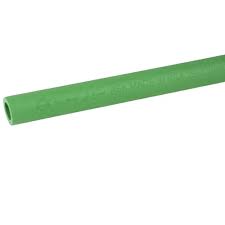Aug . 05, 2024 21:37 Back to list
Versatile High-Density Polyethylene Hose for Efficient Irrigation Solutions in Agriculture and Landscaping
The Benefits and Applications of HDPE Flexible Irrigation Pipes in Modern Agriculture
In recent years, the agricultural sector has been revolutionized by innovations in irrigation technology, chief among them being High-Density Polyethylene (HDPE) flexible irrigation pipes. With a growing emphasis on sustainability and efficient water usage, these pipes have gained significant traction, especially in regions like China, where agriculture plays a pivotal role in the economy.
Advancements in Irrigation Technology
HDPE flexible irrigation pipes represent a remarkable advancement over traditional materials. Constructed from high-density polyethylene, these pipes are known for their durability, flexibility, and resistance to environmental factors. Unlike metal or PVC pipes, HDPE pipes will not corrode, crack, or degrade under harsh conditions, making them ideal for use in various terrains and climates. Their flexibility allows for easier installation and repositioning, which is essential in adapting to diverse agricultural needs.
Water Efficiency and Conservation
One of the primary advantages of HDPE flexible irrigation pipes is their ability to facilitate efficient water distribution. These pipes can be deployed in various irrigation systems such as drip, sprinkler, or subsurface irrigation. The precision of water application minimizes runoff and evaporation, leading to significantly less water wastage. This efficiency is particularly crucial in arid regions or during periods of drought when water conservation is essential. Farmers utilizing HDPE irrigation systems can experience substantial reductions in water usage while maintaining or even increasing crop yields.
Cost-Effectiveness
china hdpe flexible irrigation pipe

While the initial investment in HDPE flexible irrigation systems may be higher than traditional methods, the long-term benefits are undeniable. The durability of HDPE pipes means lower maintenance and replacement costs over time. Additionally, the efficient use of water can lead to lower utility bills and increased crop production, ultimately improving the farmer's return on investment. In countries like China, where the agricultural sector is under constant pressure to improve efficiency, the adoption of HDPE pipes can significantly enhance economic viability.
Environmental Impact
The environmental advantages of HDPE flexible irrigation pipes cannot be overstated. By promoting efficient water use and reducing waste, these irrigation systems contribute positively to ecosystem sustainability. Moreover, HDPE is a recyclable material, which means that at the end of its lifespan, the pipes can be repurposed instead of contributing to landfill waste. This aligns with the global push towards more sustainable agricultural practices, further reinforcing the role of HDPE pipes in modern farming.
Versatile Applications
HDPE flexible irrigation pipes are not just confined to agricultural fields. Their versatility allows for applications in various sectors, including landscaping, horticulture, and even residential gardening. As urban farming becomes more popular, HDPE pipes can be employed in rooftop gardens and community green spaces, promoting sustainable practices in urban environments.
Conclusion
The integration of HDPE flexible irrigation pipes into agricultural practices marks a significant step towards achieving efficient, sustainable, and economically viable farming. As water scarcity becomes a pressing issue worldwide, the use of technologies that allow for better resource management will be essential. In countries like China, where agriculture is critical, adopting HDPE pipes can not only enhance productivity but also contribute to the preservation of vital water resources. By embracing innovations such as HDPE flexible irrigation pipes, farmers can lead the way toward a more sustainable and resilient agricultural future.
-
DN100 PVC Pipes for Well Casings - Durable & Corrosion-Resistant
NewsAug.22,2025
-
HORON 25mm PPR Plumbing Pipes: Durable, Reliable & Leak-Proof
NewsAug.21,2025
-
32mm HDPE Pipes in Coil: Flexible & Durable Water Supply
NewsAug.19,2025
-
Flexible 32mm HDPE Pipes in Coil - Durable & Easy Install
NewsAug.18,2025
-
HDPE Sprinkler Pipe Manufacturers - Quality & Durable Solutions
NewsAug.17,2025
-
Durable DN100 PVC Well Casing Pipes for Reliable Water Supply
NewsAug.16,2025

